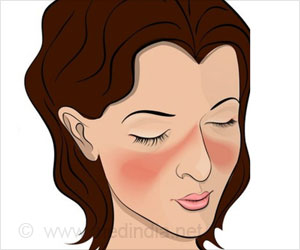Camel milk can be as healthy as cow’s milk as it has higher nutrition value than the cow’s milk
An Israeli scientist wants to turn camel milk, a healthier option than cow's milk, into the "white gold" of the desert.
The practised method of milking normally yields some 1.5 litres of milk per camel a day - much less than the yield of 20 litres produced by cows. Yagil, however, says he has developed a method that yields at least 15 litres per camel a day.Traditionally seen as riding and pack animals, camels are hugely underestimated and under-exploited for their milk, even though camel milk is the most suitable for human consumption after mother's milk, Reuven Yagil points out.
Cow's milk, although the most commonly consumed, actually ranks lowest after sheep, goat, horse, camel and human milk respectively, says the physiology professor, who has studied the nutritional and medical benefits of camel milk along with other scientists at Ben-Gurion University in the southern Israeli city of Beersheba.
Camel milk, which has a subtle difference in taste and is somewhat thinner in texture than cow's milk, is easily digested by people who suffer from "lactose intolerance" and lack the enzyme necessary to break down the sugar in cow's milk.
It is non-allergenic because it lacks the two types of protein responsible for allergies brought on by cow's milk. It also has a low fat content of about two percent and of a type that is mostly poly-unsaturated, while cow's milk is rich in saturated fat - the kind that contributes to the clogging of the arteries.
Camel milk also contains three times more vitamin C than cow's milk, and is rich in calcium and iron. But perhaps most importantly, camel milk contains antibodies that strengthen the immune system.
Advertisement
In conventional medicine, people with allergies are given drugs that suppress the immune system, but camel milk takes a contrary approach and rejuvenates the immune system, explains the South-African-born Israeli.
Advertisement
"The potential is massive," says the FAO's dairy and meat expert Anthony Bennett. "Milk is money."
Camel milk has a potential global market of $10 billion a year, with 200 million potential customers in the Arab world and millions more in Africa, Europe and America, according to the FAO.
Yagil hopes to find partners and funding for large-scale clinical trials on patients with allergies and auto-immune diseases, which he hopes, will confirm the results of earlier trials.
Camel milk also contains insulin and the Negev-based scientist says its consumption can help treat diabetes. Without knowing the science behind it, Bedouins have believed for centuries that camel milk has curative powers.
Yagil plans to build a complex in the southern Israeli Negev desert, south of Beersheba aimed at promoting his ideas on camel milk.
The $10 million project includes a farm with 200 camels, a milk factory, a research-and-development centre and a training facility, where he wants to teach his method of maximizing milk production to African herders.





